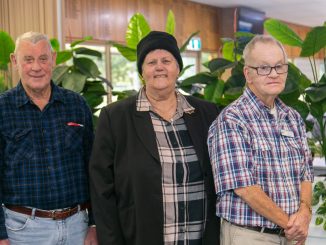
Australian farmers will be pushed to the brink if the proposed Biosecurity Protection Levy is implemented on July 1, according to Agforce.
AgForce’s Chair of the Biosecurity Committee Belinda Callanan and Senior Policy adviser Dr Annie Ruttledge appeared at a public hearing for the Senate Committee inquiry into the Biosecurity Protection Levy.
Ms Callanan told the Senate Rural and Regional Affairs and Transport Legislation Committee that industry is united against the Biosecurity Protection Levy.
“July 1 is fast approaching and there has been no adequate regulatory impact statement undertaken. It is just far too quick to implement a levy of such significance.”
In AgForce’s submission to the Senate Committee, it was pointed out that since its announcement in the 2023-24 Federal Budget, the Biosecurity Protection Levy has been met with overwhelming industry opposition stemming from a number of factors.
Lack of recognition and fairness
Primary producers already shoulder a disproportionately large share of biosecurity costs and consequences.
Lack of industry confidence in use of the collected funds.
The agricultural sector is deeply concerned over lack of clarity around how the revenue collected under the Biosecurity Protection Levy will be invested. Producers and their representative bodies have no direct role in determining its use, and the late addition of an advisory panel to oversee the BPL has done little to improve industry confidence.
Charging farmers to manage risks created by importers
The two greatest biosecurity disasters in recent times, varroa mite and red imported fire ants, are both thought to have entered Australia in shipping containers. Disappointingly, the Coalition Government never delivered on their plan to impose charges on containerised and bulk imports arriving via sea. Now, illogically, the Labour Government is rushing to impose costs of border biosecurity activities on our farmers instead.
Speaking after the hearing, AgForce Queensland Senior Policy Advisor Dr Annie Ruttledge says the Biosecurity Protection Levy is effectively a tax on farmers that provides little guaranteed benefit.
“Its name implies it is earmarked for biosecurity – so why is it being directed into consolidated revenue?” Dr Ruttledge says.
“Levies are imposed by government at the request of industry, following extensive stakeholder consultation, with funds directed based on what industry requests. None of this is the case for this so-called Biosecurity Protection Levy.”
Mrs Callanan says the consultation process was unstructured and rushed for a policy of this scale, causing added confusion.





